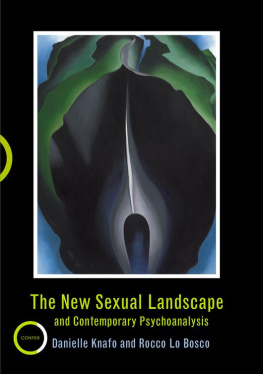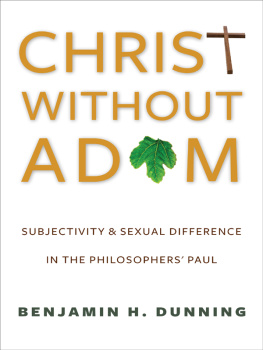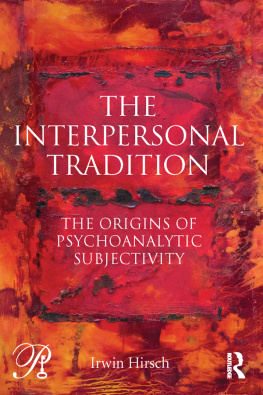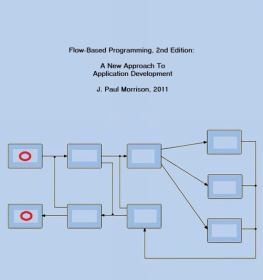The Explanation for Everything
SEXUAL CULTURES: New Directions from the Center for
Lesbian and Gay Studies
General Editors: Jos Esteban Muoz and Ann Pellegrini
Times Square Red, Times Square Blue
Samuel R. Delany
Private Affairs
Critical Ventures in the Culture of Social Relations
Phillip Brian Harper
In Your Face
9 Sexual Studies
Mandy Merck
Tropics of Desire
Interventions from Queer Latino America
Jos Quiroga
Murdering Masculinities
Fantasies of Gender and Violence in the American Crime Novel
Greg Forter
Our Monica, Ourselves
The Clinton Affair and the National Interest
Edited by Lauren Berlant and Lisa Duggan
Passing
Identity and Interpretation in Sexuality, Race, and Religion
Edited by Mara C. Snchez and Linda Schlossberg
The Explanation for Everything
Essays on Sexual Subjectivity
Paul Morrison
The Explanation for Everything
Essays on Sexual Subjectivity
PAUL MORRISON

NEW YORK UNIVERSITY PRESS
New York and London
2001 by New York University
All rights reserved
Earlier versions of appeared in GLQ: A Journal of Lesbian
and Gay Studies 1, no. 1 (1993) and Genders 11 (fall 1991) respectively.
Library of Congress Cataloging-in-Publication Data
Morrison, Paul (Paul A.)
The explanation for everything : essays on sexual subjectivity /
Paul Morrison.
p. cm. (Sexual cultures)
Includes bibliographical references and index.
ISBN 0-8147-5673-5 (cloth : alk. paper)
ISBN 0-8147-5674-3 (pbk. : alk. paper)
1. Homosexuality. 2. Homosexuality in literature. 3. Homosexuality
in art. 4. Heterosexuality. I. Title. II. Series.
HQ76.25 M667 2001
306.766dc21 2001003800
New York University Press books are printed on acid-free paper,
and their binding materials are chosen for strength and durability.
Manufactured in the United States of America
10 9 8 7 6 5 4 3 2 1
For Catherine, Georgia, and Grace
and in loving memory of Tom
Contents
Acknowledgments
Of the many hands involved in the writing of this book, it gives me particular pleasure to recall those of Stuart Blackley, John Burt, Mary Campbell, John Jay Crickett, Scott Derrick, Lee Edelman, William Flesch, Eugene Goodheart, David M. Halperin, Thomas A. King, Alan Levitan, Joseph Litvak, Richard Meyer, Helena Michie, Frank Nye, Ann Pellegrini, Henry Schaffer, and Susan Staves.
1 The Explanation for Everything (Bad)
The claim Im straight is the psychosexual analogue of The check is in the mail: if you need to say it, your credit or credibility is already in doubt. But such was not always the case. Up until the end of the eighteenth century, Foucault argues, the regulation of sexuality focused primarily on legitimate alliances. The right to privacy (as we now call it) did not extend even to a law-abiding bedroom; the married couple, much more so than the pervert, was the object of anxious scrutiny and control, and the normative were routinely obliged to justify themselves as such:
The sex of husband and wife was beset by rules and recommendations. The marriage relation was the most intense focus of constraints; it was spoken of more than anything else; more than any other relation, it was required to give a detailed accounting of itself. It was under constant surveillance: if it was found to be lacking, it had to come forward and plead its cause before a witness.
The modern world exactly reverses this incitement to discourse. The pervert comes to occupy center stage, endlessly declaring that he-is-what-he-is, even as the legitimate couple withdraws discreetly to the wings:
The legitimate couple, with its regular sexuality, had a right to more discretion [than in the past]. It tended to function as a norm, one that was stricter, perhaps, but quieter. On the other hand, what came under scrutiny was the sexuality of children, mad men and women, and criminals; the sensuality of those who did not like the opposite sex. It was time for all these figures, scarcely noticed in the past, to step forward and speak, to make the difficult confession of what they were. (3839)
Exclusion from representation is conventionally held to be the unhappy fate of the socially marginal or the sexually aberrant. Exemption from representation, Foucault counters, is the singular privilege of the normative. To occupy center stage, to declare ones heterosexual credentials, is already to protest too much. The only compelling proof of sexual legitimacy is the subjects felt knowledge that no proof is necessary. Dont ask, dont tell: the policy of compulsory discretion that now governs gays in the U.S. military has long been the informing (if thoroughly internalized) decorum of normativity. Heterosexuality is the love that dare not speak its name.
Conventional wisdom has it otherwise. Homosexuality is the proverbially innominate love, although if it too is not to be named, it is for reasons that have little to do with gay reticence. Heterosexuality speaks the name of its demonized other only at some peril to itself. As Eve Sedgwick has shown, the dreary game of find-that-faggot, the ferreting out of latent or repressed or closeted homosexuality, is always troubled by the logic of it takes one to know one; too deft a hand at the game easily betrays a limp wrist. But as Foucault suggests, silence is not the absolute limit of discourse, and it is easy enough to invoke the specter of homosexuality without ever once risking the word:
Silence itselfthe things one declines to say, or is forbidden to name, the discretion that is required between different speakersis less the absolute limit of discourse, the other side from which it is separated by a strict boundary, than an element that functions alongside the things said, with them and in relation to them within over-all strategies. (27)
terms, for instance, and your sexual proclivities are immediately apparent to everyone. A sexuality that falls too conspicuously below the level of representation is as suspect as one that rises too eagerly to it. Hence, the paradox: if heterosexual credentials are to prove convincing, they must never be offered or demanded, yet the subjects felt knowledge that no proof is necessary must never feel like exclusion from representation. When imposed on gays in the military, the policy of Dont ask, dont tell merely guarantees the normative the triumphalism of their knowingness. (To be entirely pleasurable, sexual knowledge must be extracted from, not freely given by, the perverse subject.) When internalized by heterosexuals themselves, however, the same policy underwrites the strategic silence that envelops the norm. In the modern world, the norm is stricter but quieterso quiet, in fact, that the very attempt to formulate it (one of the ambitions of the present study) presupposes a failure to attain to it.
The normative subject would thus seem to be in a highly vexed relation to what Foucault terms the truth of sex:
Between each of us and our sex, the West has placed a never-ending demand for truth; it is up to us to extract the truth of sex, since this truth is beyond its grasp, it is up to sex to tell us our truth, since sex is what holds it in darkness. (77)
Next page









